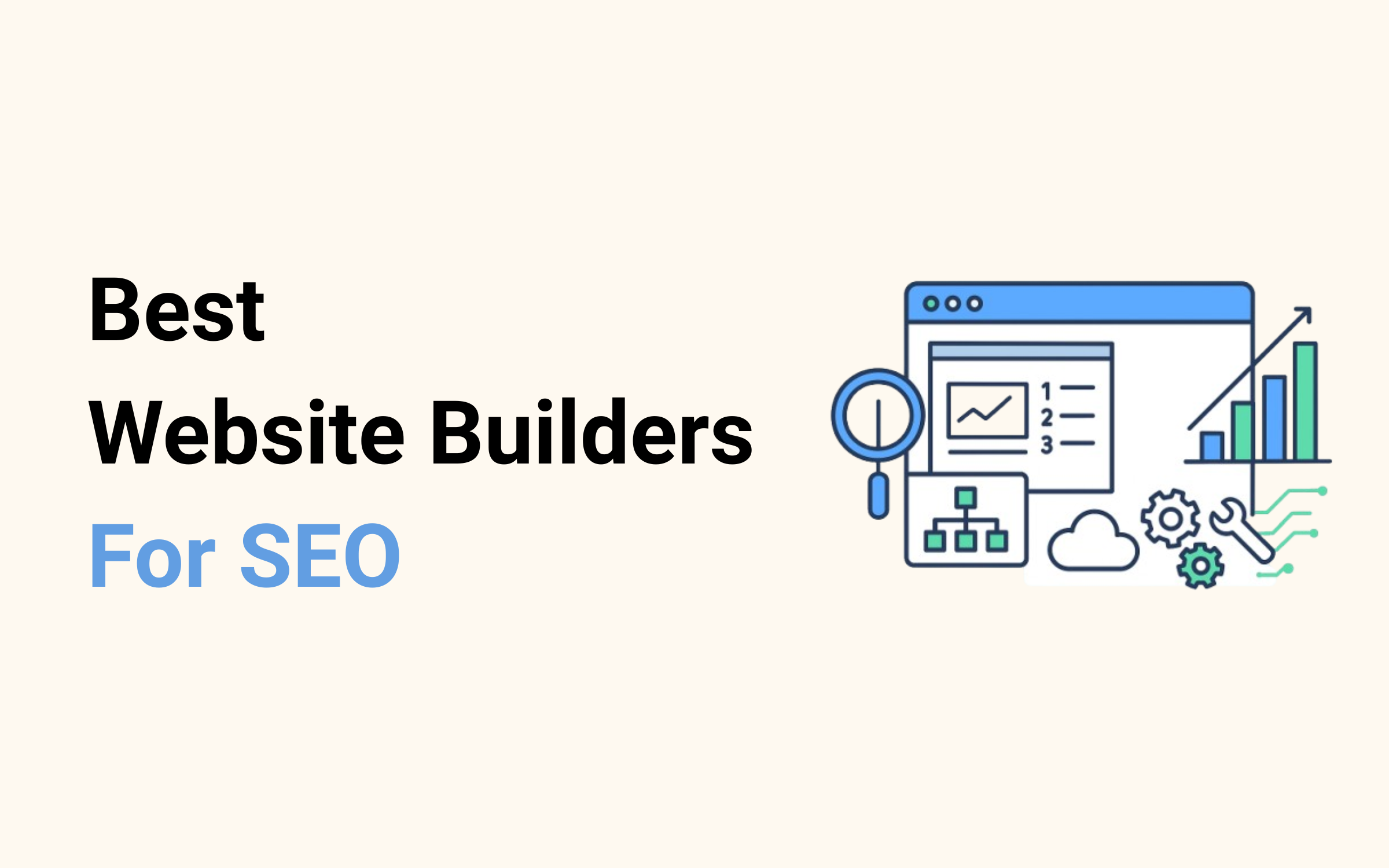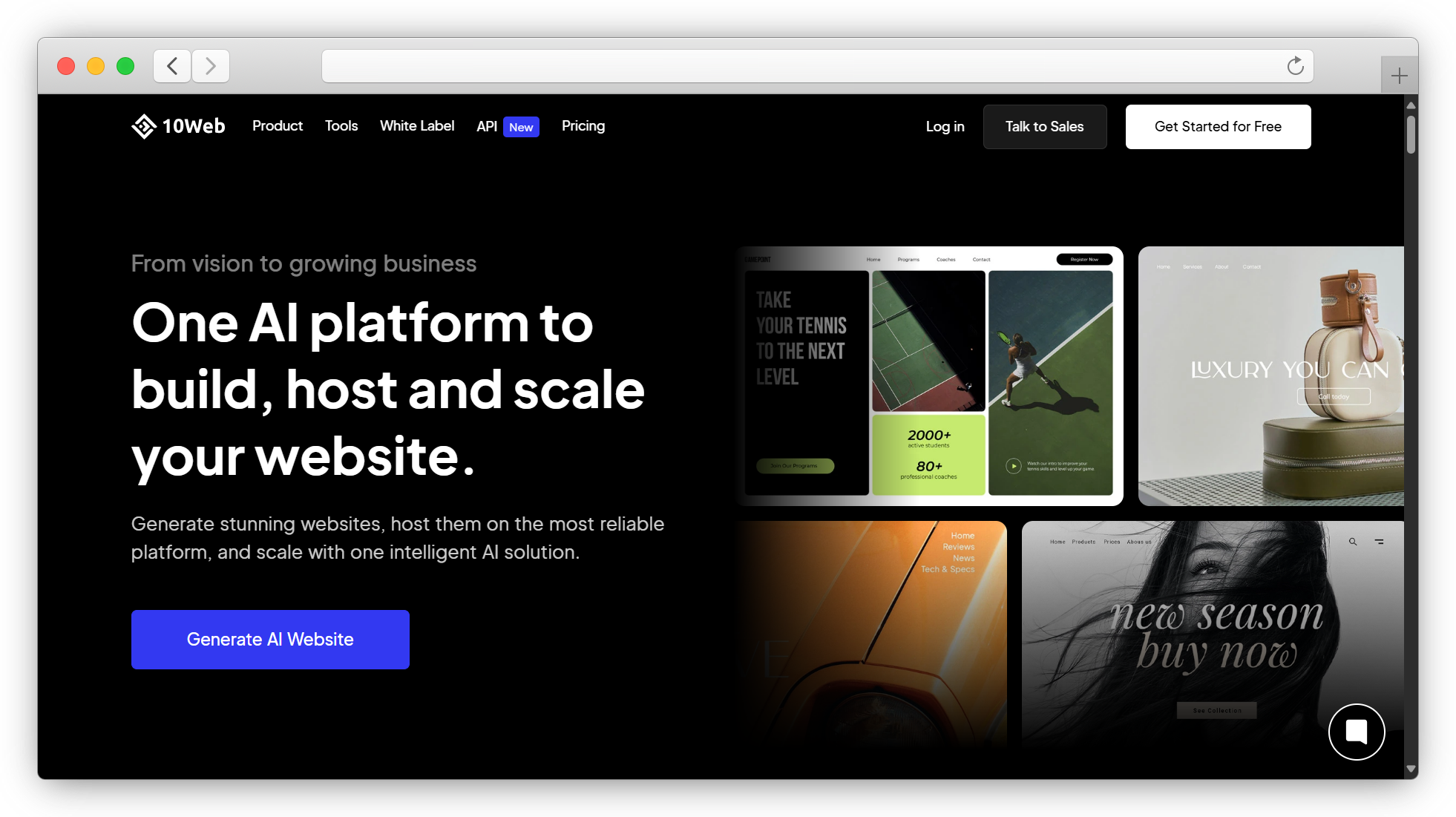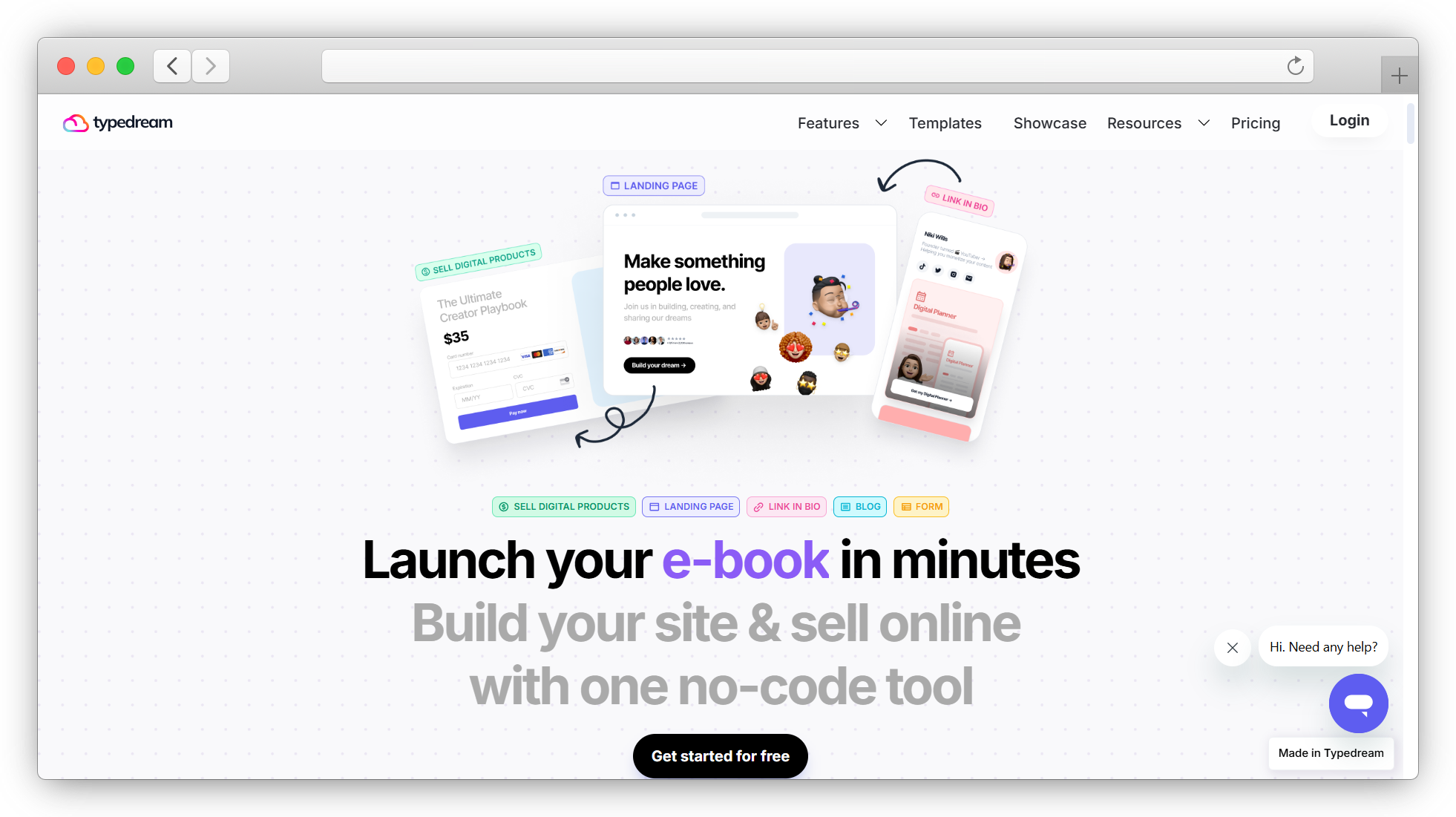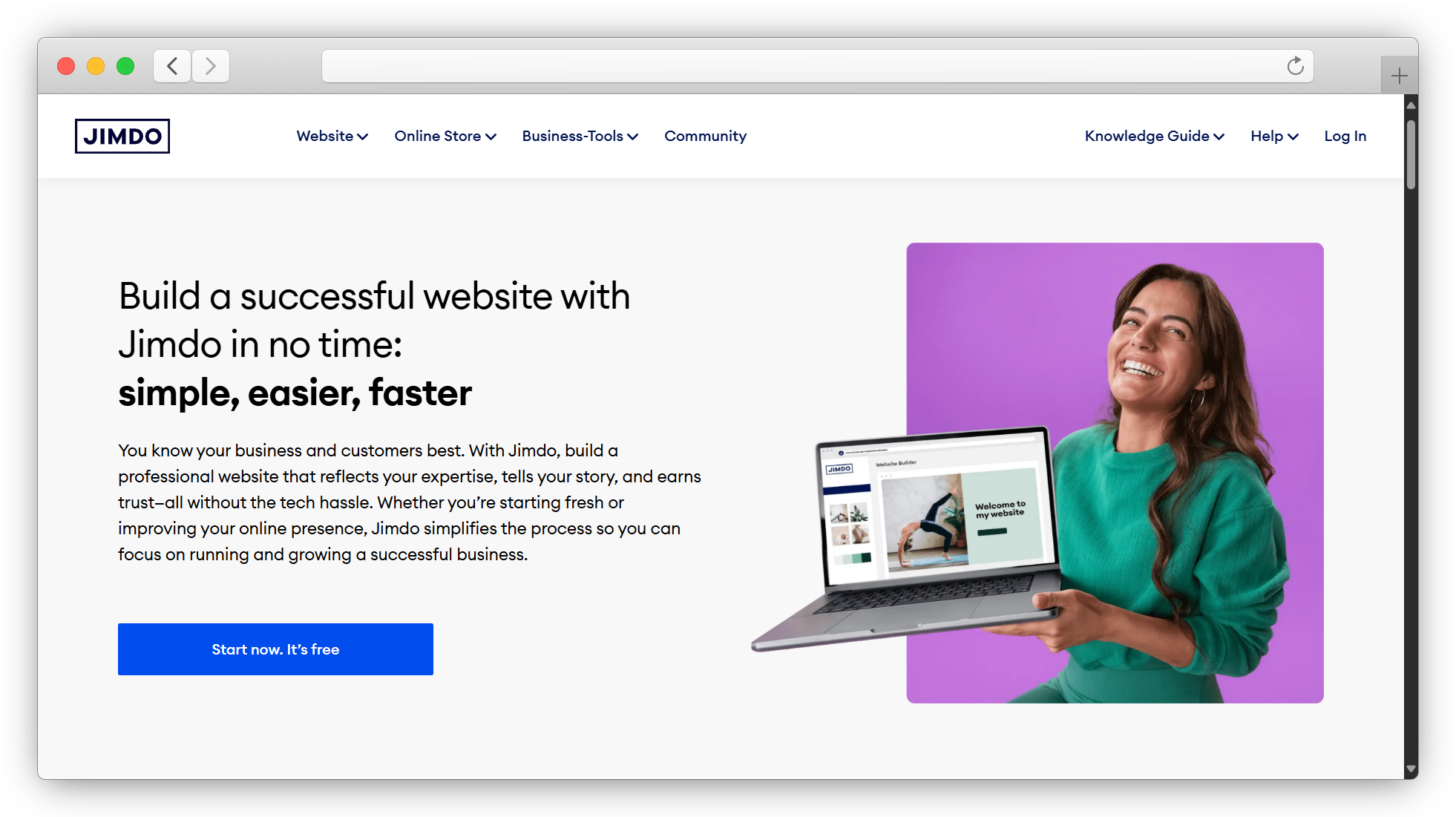
Best Website Builders for SEO in 2025: Top 15 Platforms Compared
Sep 1, 2025 · Comarketer
Why SEO-Friendly Website Builders Matter More Than Ever
Back when we were SEOExpert AI, our nights often stretched long into the early hours, fine-tuning clients’ websites for search visibility the “old-fashioned” way. Every project meant manually coding meta tags, structuring content, and chasing every new Google update, and the pain points were everywhere.
Clunky CMSes slowed us down. Website builders looked sleek but often hid critical SEO controls. Sites that were visually stunning still struggled to rank. These frustrations weren’t just minor inconveniences, they were roadblocks to real growth and visibility.
From these experiences, we learned one key lesson: the right tools can make or break your SEO strategy. Every decision, from site structure to metadata, matters in a digital landscape crowded with over 1.8 billion websites.
This guide is carefully curated and research-backed, built to show which website builders are genuinely SEO-friendly in 2025. These are tools that give you control, speed, and modern optimization features to help your website stand out.
What SEO Actually Is
SEO, or Search Engine Optimization, is the practice of improving your website’s visibility and ranking in search engines. Why does it matter? Organic search results still account for around 94% of all clicks, which means if your site isn’t optimized, it’s practically invisible to most users.
SEO isn’t a single task. It’s a combination of strategies:
- On-Page SEO: Optimizing content, headings, meta descriptions, and internal links to signal relevance to search engines.
- Technical SEO: Ensuring your website is crawlable, fast-loading, mobile-friendly, and structured for maximum search performance.
- Off-Page SEO: Building credibility through backlinks, mentions, and authority signals.
In 2025, SEO is more than just keywords. It’s about structured content, optimized performance, mobile readiness, and technical foundations that make your site discoverable across traditional search engines and emerging AI-driven platforms like ChatGPT, Gemini, and Perplexity.
What Makes a Website Platform SEO-Friendly
Not all website builders are created equal. In 2025, true SEO-friendliness goes far beyond looking good on a page. The platforms that actually help you rank share a few critical features:
- Fast loading, mobile responsive, clean code: Search engines reward sites that load quickly and work seamlessly on any device. If your builder slows down your pages or generates messy code, your SEO is already compromised.
- Control over meta tags, canonical URLs, schema markup, sitemaps, and robots.txt: These are the technical foundations of SEO. Without access to them, even the best content might never reach the top of search results.
- Custom file management for AI search (llms.txt): AI-driven search engines are becoming the new frontier. Having the ability to manage AI-specific files ensures your content is discoverable by next-gen search tools.
- Analytics & search console integration: You can’t improve what you don’t measure. Deep integrations let you track traffic, monitor performance, and quickly identify issues.
- Built-in tools for off-page visibility, rank tracking, and technical audits: The best platforms don’t just help you build. They actively guide you to maintain SEO health over time.
Spoiler: one tool on our list goes above and beyond, offering keyword research, content planning, competitor analysis, and AI search optimization, giving you a full SEO toolkit without juggling multiple apps.
In short, a good SEO-friendly builder gives you control, transparency, and actionable insights, not just pretty templates.
Also read:
- Top 15 Website Builders for Agencies in 2025 | Expert Comparison & Reviews
- 15 Best Free AI Website Builders in 2025 (Tested & Ranked)
- 14 Best WordPress Alternatives in 2025 (Top Picks)
What You Actually Need for SEO (2025 Edition)
Having the right platform is only half the battle. To truly dominate search in 2025, your strategy should include:
- Intent-driven page structures: Organize content around user intent, not just keywords. Search engines prioritize relevance and clarity.
- Automated internal links: Smart linking keeps visitors engaged and helps search engines understand your site structure.
- Instant schema generation & FAQ markup: Structured data allows search engines to display rich results, making your pages stand out in both traditional and AI-powered search.
- Keyword research, competitor tracking, and distribution: Know what your audience is searching for, what your competitors are ranking for, and how to strategically place content across your site.
- Real-time performance audits & technical health checks: Regularly monitor your site to catch broken links, speed issues, and crawl errors before they impact rankings.
- Optimization for AI engines and traditional Google/Bing: Modern SEO isn’t just about Google anymore. Your content should be discoverable across AI assistants, answer boxes, and emerging platforms like ChatGPT, Gemini, and Perplexity.
With these essentials in place, any website, whether built on a traditional CMS or an AI-powered builder, has the foundation to rank and stay competitive in 2025.
The SEO Files That Really Matter in 2025
Beyond strategy, a few key files quietly decide how search engines (and now AI models) understand and index your site. If your platform doesn’t give you control over these, you’re flying blind.
- robots.txt – Tells search engines what they can and cannot crawl on your site. Critical for blocking duplicate or sensitive pages.
- sitemap.xml – Acts like a roadmap for search engines, listing all important URLs so they’re discovered and indexed faster.
- llms.txt – A new emerging standard designed to guide large language models (LLMs) on what site content they can use for training or retrieval.
- llms-full.txt – An extension of llms.txt that provides granular instructions for AI crawlers, helping you stay visible in future AI-driven search.
- Schema Markup – Structured data embedded in your pages that enables rich results, FAQs, and featured snippets in both search engines and AI answers.
Together, these files act as your technical handshake with both search engines and AI systems - ensuring your site isn’t just visible, but discoverable in the right way.
Top 15 SEO-Ready Website Builders to Crush Rankings in 2025
Finding the right website builder can make or break your SEO. These 15 platforms are curated for real results, offering fast performance, technical control, and AI-ready features to help your site stand out in both traditional search engines and next-gen AI search.
Please note: Based on our knowledge and experience, these are some of the top tools we recommend. The list is not in any particular order.
1. Comarketer.dev
Ease of Use: Unique dual interface combining an AI-powered code generator with a WYSIWYG visual editor, accessible to both developers and marketers
SEO Strengths & Differentiators
- Functions as both an AI code generator for clean, optimized website code from natural language prompts and a visual editor for easy design and customization
- Built specifically for SEO with automated meta tags, schema, and key AI-friendly files like robots.txt, sitemap.xml, llms.txt, llms-full.txt, and Schema Markup, helping your site get discovered on Google and AI search engines like ChatGPT and Perplexity
- Real-time competitor tracking, keyword insights, and on-demand SEO optimization fully integrated into workflow
- Balances granular technical control with AI-driven automation for speed and precision
- CMS integration via Payload CMS ensures blogs are SEO-friendly and performant
- Mobile-friendly and optimized for page speed, with PageSpeed Insights integration giving scores on performance, accessibility, best practices, and SEO
- Instant deployment with free, high-performance hosting on Vercel and version control for confident editing and rollback
- Upcoming ability to run LinkedIn and Google ads directly with built-in analytics
Limitations / Caveats
- Although you can create 2–3 websites with the free credits, scaling to agency-level work will require an upgrade.
Best Use Case
Agencies, marketers, and developers who want rapid AI-driven site production with deep SEO capabilities, balancing code-level control and visual customization without traditional coding overhead
Pricing: Free tier available with 20 free credits; pay-as-you-go credit packs start at $15 for 100 credits; custom enterprise pricing available
Curious how it works? We’ve created a simple guide to help you build your first site on Comarketer.dev.

Visit Comarketer.dev for more information.
2. Wix Studio
Ease of Use: Professional no-code visual builder with advanced design flexibility and collaboration tools
SEO Strengths & Differentiators
- Deep SEO automation including Wix SEO Wiz and Semrush integration for keyword research
- Full control over meta tags, canonical URLs, robots.txt, sitemap, and mobile-first performance optimizations
- AI-powered content and website design tools help create SEO-ready pages quickly
- Enterprise-grade infrastructure ensures fast loading times globally, security, and multi-site management
- Strong support for structured data, schema markup, and accessibility features
Limitations / Caveats
- Pricing can be cost-prohibitive for small solo projects
- Backend customization is limited compared to CMS platforms, which might restrict advanced SEO fine-tuning
Best Use Case
Agencies and teams seeking a scalable, visually powerful website builder with integrated SEO tools, supporting complex projects and multi-client management
Pricing: Custom enterprise pricing; individual websites start at approximately $17/month for basic plans

Visit Wix Studio for more information.
3. Webflow
Ease of Use: Designed for designers and developers wanting pixel-perfect control; steeper learning curve than typical builders
SEO Strengths & Differentiators
- Complete access to underlying HTML, CSS, and JavaScript for superior SEO optimization
- Granular control of meta titles, descriptions, Open Graph tags, canonical URLs, and automatic sitemap generation
- Built-in 301 redirects and advanced schema markup support for rich results
- Fast loading times and mobile responsiveness built into core templates
- Strong CMS capabilities enable sophisticated content organization and scaling for SEO-centric websites
Limitations / Caveats
- Steeper learning curve can be challenging for beginners or non-developers
- Lacks automated AI-driven SEO suggestions like keyword optimization or content audits found in some other builders
- Some
usersreport mixed reviews for SEO performance, especially without technical expertise
Best Use Case
Designers, developers, and SEO professionals prioritizing complete technical control for visually custom, SEO-optimized, scalable websites
Pricing: Basic CMS hosting plan starts at $14/month; CMS plan at $23/month; customizable team and enterprise pricing

Visit Webflow for more information.
4. Squarespace (Blueprint/Fluid Engine)
Ease of Use: Intuitive drag-and-drop editor with modern templates, enhanced by Fluid Engine for faster load times and flexibility
SEO Strengths & Differentiators
- Built-in SEO tools: automatic XML sitemaps, clean URLs, meta title & description editing, automatic image alt text
- Fluid Engine boosts site speed and mobile responsiveness - key ranking factors in 2025
- AI-powered template generation and flexible design controls for SEO-friendly layouts
- Deep integration with social media, email marketing, and analytics
- Robust e-commerce & appointment scheduling platforms support SEO for service and retail businesses
Limitations / Caveats
- Limited backend code access vs developer-centric platforms like Webflow
- Higher pricing tiers for ecommerce SEO functionalities
Best Use Case
Small to medium businesses and creatives wanting a beautifully designed, SEO-optimized website with minimal technical overhead
Pricing: Personal $16/month; Business $23/month; Basic Commerce $28/month; Advanced Commerce $52/month

Visit Squarespace for more information.
5. Hostinger Website Builder
Ease of Use: Simple drag-and-drop builder with AI-assisted content and styling tools
SEO Strengths & Differentiators
- Built-in SEO tools: keyword suggestions, meta title/description generation, automatic sitemap creation
- AI-powered editor for SEO-friendly content and images without technical expertise
- Mobile-optimized templates for higher rankings
- Seamless integration with Google Analytics, Facebook Pixel, and built-in email marketing
- Instant domain connection and SSL support for secure sites
Limitations / Caveats
- Limited advanced SEO controls like canonical URLs or schema markup
- Best suited for small business or personal sites, not enterprise SEO projects
Best Use Case
Small business owners, freelancers, and startups needing a fast, easy website with AI SEO help without hiring specialists
Pricing: Plans start at $3.79/month with annual billing

Visit Hostinger Website Builder for more information.
6. WordPress.com with RankMath/Yoast
Ease of Use: Highly flexible with plugins; requires learning for effective use
SEO Strengths & Differentiators
- Access to top SEO plugins (RankMath, Yoast) for audits, schema, redirects, keyword analysis
- Complete control over permalinks, metadata, sitemaps, social sharing
- Huge plugin ecosystem for local SEO, image optimization, caching, speed
- Strong community support and extensive SEO documentation
- Highly scalable for blogs, enterprise sites, and e-commerce
Limitations / Caveats
- Requires more manual setup and maintenance than all-in-one builders
- Some plugin features reserved for paid plans, adding cost
Best Use Case
Bloggers, publishers, and enterprises needing full control over SEO with powerful third-party integrations
Pricing: RankMath starts at $6.99/month; Yoast has a basic free plan; Yoast Premium costs $89/year

Visit WordPress.com for more information.
7. Duda
Ease of Use: User-friendly drag-and-drop editor for agencies and small businesses with client management features
SEO Strengths & Differentiators
- Built-in SEO audit and optimization: meta tags, automated sitemaps, schema markup
- Mobile optimization and fast page loads by default
- Client management and white-label options for multi-client SEOs
- Integrations with Google Analytics and Search Console
- Customizable robots.txt and canonical URLs for advanced SEO
Limitations / Caveats
- Less depth and plugin variety than WordPress for specialized SEO needs
- Not ideal for large, content-heavy sites requiring complex CMS
Best Use Case
Small agencies and freelancers seeking an all-in-one builder with built-in SEO tools and client management
Pricing: Basic plans start at $19/month; team and enterprise pricing on request

Visit Duda for more information.
8. Shopify
Ease of Use: Ecommerce-first platform with intuitive tools, built-in sales and marketing features
SEO Strengths & Differentiators
- Strong ecommerce SEO: customizable meta tags, automatic sitemaps, clean URLs, breadcrumb navigation
- AI-driven product descriptions and content suggestions
- Multichannel selling optimized for Google, Facebook, Instagram, and more
- Shopify Markets enables localized SEO for global reach
- Global CDN ensures fast loading - critical SEO factor
Limitations / Caveats
- Ecommerce focus makes it less ideal for content-heavy or non-retail sites
- Advanced SEO customization often requires third-party apps or developers
Best Use Case
Entrepreneurs and businesses scaling online stores with SEO baked into multichannel sales
Pricing: From $39/month up to $399/month; enterprise pricing available

Visit Shopify for more information.
9. Framer
Ease of Use: Designer-first, blending no-code editing with customization and collaboration
SEO Strengths & Differentiators
- Clean, semantic HTML optimized for speed and crawlability
- Responsive by default with mobile-first optimization
- Full control over meta tags, custom code injection, and global styles
- Integrates with analytics and SEO audit tools
- Real-time collaboration accelerates SEO-driven workflows
Limitations / Caveats
- Lacks built-in SEO automation or AI tools
- Limited plugin ecosystem and less suited for content-heavy projects
Best Use Case
Designers and teams creating brand-forward sites needing flexibility and SEO-friendly code
Pricing: For Businesses, the launch plan starts at $75/month/site; Personal Mini plan starts at $5/month/site. (Only 2 pages included)

Visit Framer for more information.
10. 10Web
Ease of Use: AI-powered WordPress platform simplifying site building, hosting, and SEO
SEO Strengths & Differentiators
- AI-driven WordPress site creation with SEO-optimized layouts
- Built-in page speed optimization (90+ PageSpeed scores) and Cloudflare Enterprise CDN
- Full compatibility with SEO plugins like RankMath and Yoast
- AI content and editing tools streamline SEO workflows
- Managed hosting with daily backups and security built-in
Limitations / Caveats
- WordPress learning curve still applies for deeper customization
- Bundled hosting/software pricing can feel complex to beginners
Best Use Case
WordPress users and agencies wanting AI speed, plugin flexibility, and SEO-focused performance
Pricing: $10/month starter; $24+/month agency; custom enterprise available

Visit 10Web for more information.
11. Typedream
Ease of Use: Minimalist, no-code builder for creators with drag-and-drop simplicity
SEO Strengths & Differentiators
- Built-in SEO controls for meta tags, alt text, clean URLs, mobile optimization
- Pre-designed blocks for SEO-friendly, conversion-ready pages
- Email signup and analytics integrations for engagement tracking
- Lightweight, fast-loading pages boost rankings
- Perfect for landing pages, portfolios, and micro-sites
Limitations / Caveats
- Not ideal for large, complex, or multi-page sites
- Limited advanced SEO automation and schema support
Best Use Case
Creators, solopreneurs, and small businesses wanting quick, SEO-friendly sites with minimal setup
Pricing: Free tier available; Pro from $15/month

Visit Typedream for more information.
12. Jimdo AI
Ease of Use: AI-powered website builder - create a site by describing it in natural language or uploading a design/mockup
SEO Strengths & Differentiators
- Converts prompts into clean, optimized code and structure
- Generates multiple SEO-friendly design variants
- Multilingual support for international SEO presence
- Converts visuals (screenshots/sketches/mockups) into editable, SEO-optimized websites
Limitations / Caveats
- Still new; limited integrations and advanced technical SEO features
- Less suited for large, CMS-heavy sites
Best Use Case
Creators/small businesses who want rapid, AI-generated, SEO-optimized sites with minimal manual work
Pricing: Starts at $11/month (annual), adds custom domain + email

Visit Jimdo AI for more information.
13. GoDaddy Website Builder
Ease of Use: Beginner-friendly; integrates domain, hosting, and builder
SEO Strengths & Differentiators
- Custom meta titles, descriptions, alt texts
- Automatic sitemap + SSL security
- SEO Wizard for step-by-step guidance
- Paid SEO services with keyword research & reporting
Limitations / Caveats
- Limited advanced SEO control (no schema markup editor)
- Mixed user reviews on SEO impact
- Upselling and slow DNS support reported
Best Use Case
Small/local businesses or beginners wanting a simple builder with built-in SEO basics
Pricing: $12.99–$22.99/month; SEO services cost extra

Visit GoDaddy Website Builder for more information.
14. Carrd
Ease of Use: Ultra-simple, one-page builder - great for landing pages/portfolios
SEO Strengths & Differentiators
- Custom meta titles, descriptions, alt text
- Google Analytics & verification integration
- Lightweight, mobile-responsive, fast-loading sites
- Easy sharing/embedding for reach & backlinks
Limitations / Caveats
- Single-page sites only
- No advanced schema/technical SEO controls
Best Use Case
Freelancers/individuals needing quick, SEO-optimized landing pages or portfolios
Pricing: Free plan; Pro from $19/year; Pro Lite from $9/year

Visit Carrd for more information.
15. IONOS Website Builder
Ease of Use: AI-assisted drag-and-drop builder with step-by-step guidance
SEO Strengths & Differentiators
- AI-generated SEO text and images
- Built-in SEO tools: meta tags, sitemap, robots.txt
- Integration with RankingCoach for SEO tips
- Mobile-responsive templates, stable hosting
Limitations / Caveats
- Basic SEO controls; lacks noindex/redirect/advanced settings
- Not ideal for large-scale or highly customized SEO projects
Best Use Case
Small businesses and beginners who want simple AI-assisted SEO and easy setup
Pricing: From $18/month with domain + email included

Visit IONOS Website Builder for more information.
Quick Summary: Best Website Builders for SEO in 2025
Now that you’ve seen the detailed reviews, here’s a clear snapshot of how each platform stacks up - its SEO strengths, highlights, and the type of user it’s best suited for.



SEO isn’t just a nice-to-have. It’s a core need for agencies and founders alike.
- Idea-stage founders rely on landing pages and SEO-friendly content to quickly test ideas and gauge market interest.
- Scaling founders need SEO to complement ads on platforms like Google and LinkedIn, ensuring they reach the right audience efficiently.
- For performance marketing agencies and website development agencies, strong SEO capabilities in their platforms make operations faster, smarter, and more profitable.
Not sure which is better for your needs? Dive into our AI vs. Traditional Website Builders guide to get clarity.
How to Maximize SEO on Any Website Builder
No matter which builder you choose, the real difference comes from how you set things up. Here’s a practical roadmap:
- Run an initial technical audit – Check indexing, sitemaps, SSL, and site health before going live.
- Structure your pages & internal links – Use a clear hierarchy (Home → Category → Subpage) and connect relevant content with smart linking.
- Create content + schema markup – Build keyword-rich, value-driven pages and layer them with schema for products, articles, and reviews.
- Check mobile + speed – Run mobile-friendly tests and optimize images, scripts, and hosting for speed.
- Monitor & update – Use Google Search Console, Semrush, or Ahrefs to track performance and fix issues regularly.
💡 Quick tips for 2025 search:
- Google & Bing still reward clean technical SEO and authoritative content.
- ChatGPT & Perplexity thrive on structured data + conversational content.
- Write in a human, helpful tone and make sure your answers are scannable, not stuffed with keywords.
Final Thoughts
After years of helping clients with SEO, one lesson stands out: the right platform is only half the battle - the SEO mindset is what drives growth.
In 2025, your site needs to be SEO-first and AI-ready. That means clean structures, optimized content, and a builder that doesn’t limit you when search evolves.
If you want a head start, Comarketer.dev is built with this philosophy at its core - giving you drag-and-drop ease, AI optimization, and the flexibility to code when you need to.
👉 Try Comarketer.dev today and launch a site that’s ready for the next generation of search.